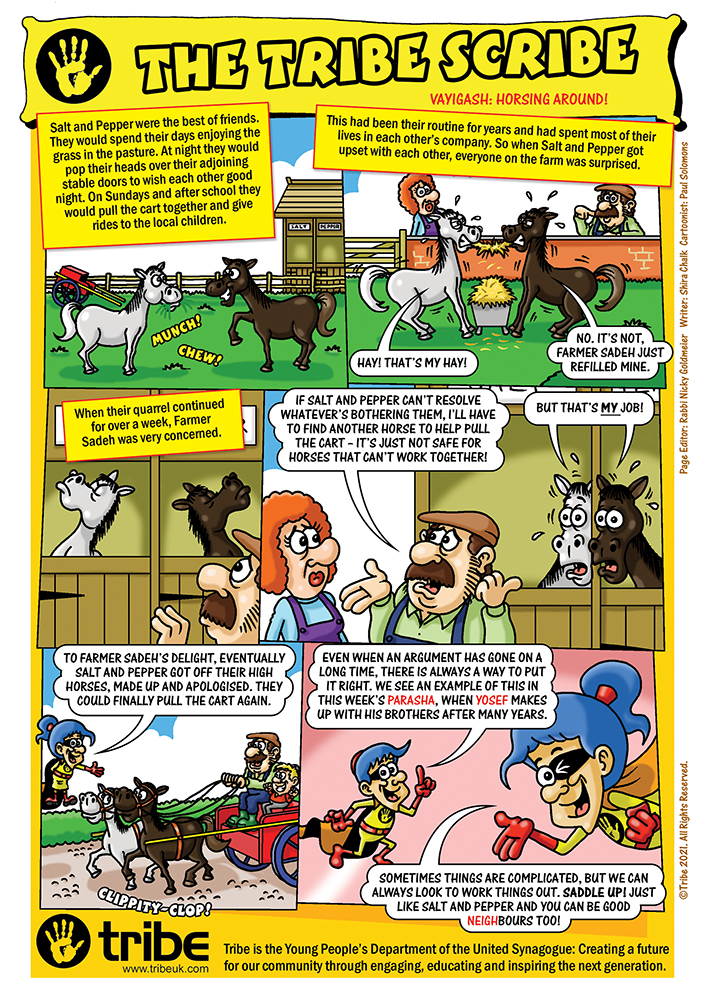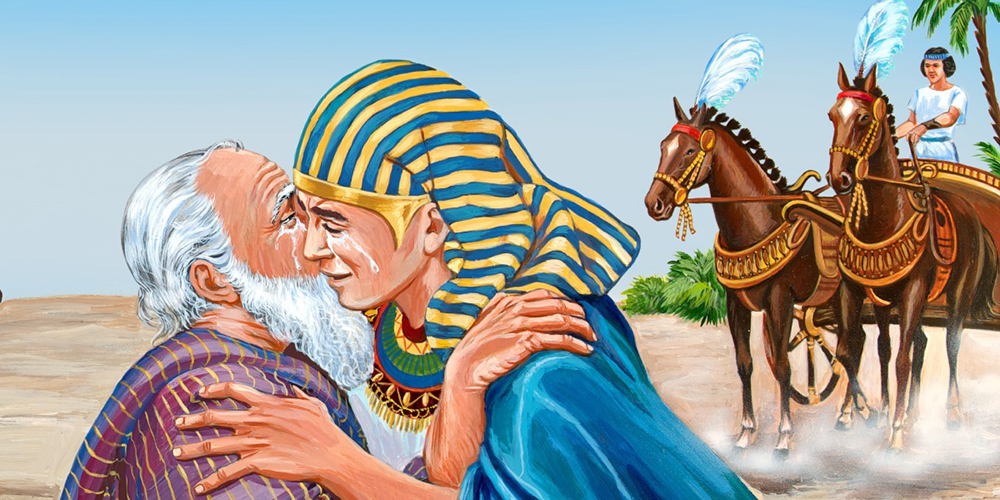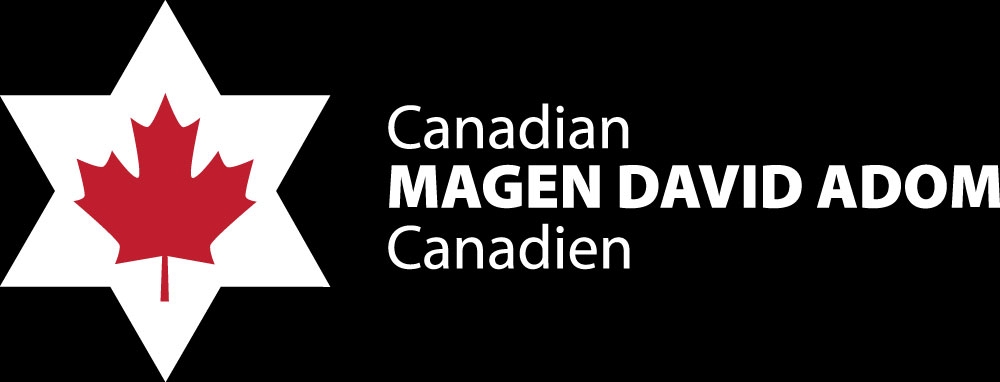Bonjour / Hello [nickname_else_first_name],
Table of contents
1) Perashat Hashavoua - Rabbi Eli Mansour
2) Halakhat Hashavoua (Halakhot related to day to day life) - Hazzan David Azerad
- Keriat Shema
3) Holy Jokes!
4) FOR KIDS!

This Week's Parasha Insight with Rabbi Eli Mansour
Parashat Vayigash: Tears and Faith
We read in Parashat Vayigash of Yaakob Avinu’s move to Egypt, where he was reunited with his beloved son, Yosef, whom he had not seen in twenty years, and whom he had thought was no longer alive. The Torah describes how Yaakob and Yosef embraced, and Yosef "cried more on his neck" ("Va’yevk Al Savarav Od" – 46:29). Rashi explains this unusual phrase as referring to "Harbot Bechiya" – "abundant crying," indicating that Yosef "continued crying more than normal."
What is "normal" crying when one sees his father for the first time in twenty years? And why is this detail important for us to know?
Rashi then proceeds to cite the famous remark of the Midrash that while Yosef wept, Yaakob did not cry, because he was busy reciting Shema. Why was Yaakob Abinu reciting Shema at this special, emotional moment?
Our Rabbis established the fundamental principle of "Ma’aseh Abot Siman La’banim" – the actions performed by our righteous ancestors serve as a "template" of what would happen to their descendants. As Yaakob and his family moved from Eretz Yisrael to Egypt, beginning what would become a long, difficult exile, Yosef understood that this was establishing the precedent for all future exiles. Now that Yaakob had arrived in Egypt, Yosef foresaw the difficult history of the Jewish People, how for centuries and millennia to come, Am Yisrael would be in exile, away from its homeland, living among other nations, who, on many occasions, would be hostile and would persecute the Jews.
This, then, might be the meaning of Yosef’s "abundant crying." He wept bitterly because he foresaw at that moment the bitterness of exile. He foresaw the "abundant crying" of the Jewish Nation throughout the ages, the tears that would flow during the Babylonian conquest, the Greek persecution, the Roman conquest, the Crusades, the Spanish Inquisition, the Holocaust – and all the other periods of terrible suffering which our nation has endured.
Yaakob Abinu responded by reciting Shema – the declaration of faith in Hashem.
The verse of "Shema Yisrael" proclaims that "Hashem Elokenu Hashem Ehad" – there is only one G-d. The Name "Havaya" signifies G-d’s attribute of compassion, and "Elokim" expresses the attribute of strict judgment. There are times when G-d manifests Himself through "Havaya," when His kindness and compassion are clear and evident, and there are times when He manifests Himself through "Elokim," when He brings hardship and adversity. The proclamation of "Shema Yisrael" affirms the belief that both "Hashem" and "Elokenu" are, in truth "Hashem Ehad" – one and the same. It affirms the belief that everything that happens is, in truth, "Havaya" – a manifestation of G-d’s kindness and compassion, because everything He does is always for the best, even when it is difficult to see how.
Yaakob made this proclamation at that moment in response to Yosef’s tears because this must be – and always has been – our response to the tears and pain of exile: faith in Hashem’s kindness under all circumstances. Immediately upon arriving in Egypt, setting into motion the long, painful history of Jewish exile, Yaakob Abinu equipped us with our most important asset through which we can survive the pain and suffering of exile – faith in "Hashem Ehad," the belief in Hashem’s boundless kindness, that even in times of hardship, He is, in truth, caring for us.
This faith has been the secret of our nation’s survival throughout our years in exile, and this is what will continue sustaining us until the end of our exile and our long-awaited redemption, may it arrive speedily and in our time, Amen.
We hope and pray that the great tragedy of the 20th century marked the final completion of this Tikkun, and that Am Yisrael shall know no more sorrow or tragedy

Keriat Shema and Its Berachot-peninei Halacha
The recital of Keriat Shema commands center stage at the beginning of the Ma’ariv prayer. It is a biblical commandment to recite Keriat Shema at night and in the morning, as written in the paragraphs of Shema and V’Hayah Im Shamoa, “When you lie down and when you get up.” It is also a mitzvah to remember the Exodus from Egypt during the day and at night, as it is written (Deuteronomy 16:3), “Therefore you will remember the day you left Egypt all the days of your life.” From the words “all the days” (kol yemei chayechah), Chazal learn that it is a mitzvah to remember the Exodus from Egypt both at day and at night (Mishnah Berachot 12:2). For that reason, the Vayomer paragraph is also recited at night, since the Exodus from Egypt is mentioned at its end. The Vayomer paragraph, which discusses the mitzvah of tzitzit, primarily applies to the day, and although one can fulfill the nighttime mitzvah of remembering the Exodus from Egypt with other verses, it is customary to remember the Exodus by reciting Vayomer, since these verses are familiar to all (Tosafot Yom Tov there). In addition, combined with the first two paragraphs of Shema, it contains 248 words (paralleling the 248 organs in the body), and by reciting all three paragraphs, one completely accepts upon himself the yoke of Heaven.
Anshei Knesset HaGedolah added the recital of two berachot before Keriat Shema and two berachot after it. The first, “Ma’ariv Aravim,” is a blessing of praise concerning the passage of time from day to night, and parallels Birkat Yotzer Or in Shacharit. The second, “Ahavat Olam,” is praise that refers to Hashem’s love for Israel and the giving of the Torah. The third, “Emet V’Emunah,” is praise about the redemption. In the fourth, “Hashkiveinu,” we ask Hashem to protect us at night and watch over us when we sleep . Hence, Birkot Keriat Shema are comprised of seven blessings, three in Shacharit and four in Ma’ariv; and the Yerushalmi (Berachot, chapter 1, halacha 5) states that they were instituted based on the verse (Psalms, 119:164), “Sheva bayom hillalticha” (“I praise You seven times daily.”)
Bevirkat Shabbat Shalom Umevorach
David Azerad
3) HOLY JoKeS!!
Selection of funny snippets, loosely related to this weeks parashah or current events, to brighten your day



4) FOR KIDS
Click on the image to open the youtube video















